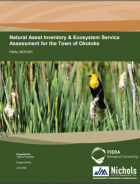Foothills Research Institute (FRI) held a workshop, Jan. 12-13 on the state of the science on Woodland Caribou. Foothills Research Institute is preparing to undertake a new caribou progam. FRI's objective was to gather the expertise of researchers and land managers to determine what are the research questions and knowledge needs for caribou recovery. Workshop participants discussed a draft "Caribou Knowledge Framework" document as part of the advice they gave FRI on developing its Caribou Program.
The staff of the Alberta Land-use Knowledge Network attended the Caribou Workshop as facilitators and recorders. We have posted videos of the Caribou Workshop presentations to landuseKN.ca We are not biologists nor have we been involved in research or management planning for woodland caribou. But we are familar with "wicked problems". Being clear on what we think we heard is a good place to start.
So as neophytes about woodland caribou, we think we heard the following at the Caribou Workshop:
- The general consensus is that the time for action is now, there is no more time to wait - quite a strong sense of urgency.
- Industry (forestry, oil and gas) are looking for practical, measurable, how-to information to guide them in habitat restoration. They are seeking on-the-ground data and guidance about what they should be doing.
- Woodland caribou are hard to count: Because woodland caribou live in woods, they are hard to count. Methods to give better counts are necessary to assess the current situation and determine if recovery efforts are working
- Caribou are not surviving: Long term data across Canada is consistent; caribou numbers and herds are dropping ... significantly ... to the point where caribou survival in Alberta is problematic.
- Action to Reduce Predation is Needed Now: 85% of young caribou calves are killed, primarily by wolves. Add in cows being killed and caribou herds do not recover. Because habitat recovery will take a long time, action to reduce predation is needed now.
- Caribou Recovery is Unlikely in the Short Term: Hence the urgency around the first point. Lichen is caribou's primary winter food. Coniferous forest and lichen habitats take long times to establish (twenty years plus). Black spruce habitat is very difficult to restore.
- Small Herds Likely Will Disappear: Some Alberta herds are so small that even with optimum habitat and predator protection, events like bad weather, road kill or a chance encounter with a predator could be catatrosphic (like the avalanche that wiped out the Banff National Park herd in 2009).
- Caribou Triage: Some scientists strongly introduced the topic of triage. Because predation is the number one factor driving caribou numbers down, they pointed out that focusing on caribou recovery actually could make things worse. If predation is not reduced, all other management processes will not slow the decline in caribou numbers and herds. Scientists discussed triage as a way to focus efforts on the herds that have the best long term chance of survival. And ultimately, they were reinforcing the first point, the time for action is now.
- Wolves, some uncomfortable choices: A majority of scientists pointed out that the number one cause for caribou decline is predation, predation, predation. Habitat restoration and conservation areas are meritous and essential to caribou recovery. But, some scientists said that focusing on habitat recovery and recovery of caribou everywhere when predator control was needed right now actually may result long term with caribou habitat but no caribou. Wolf kills, wolf sterilization and other methods to reduce wolf predation are publicly unpopular. But caribou habitat traditionally had much lower numbers of predators.
- Caribou are By-catch: Caribou are not primary prey for wolves. Wolves prey on moose, white tailed deer and beaver. But if young caribou calves and adult cows are in the area, wolves will lunch.
- More White Tailed Deer (and Moose): White tailed deer in boreal Alberta are rapidly increasing. And their share in wolf diets is rising. If these primary prey for wolves is not reduced (short term through hunting, long term through habitat change), even reducing wolf numbers is a short term fix. Wolf numbers will rebound because of the abundance of deer and moose.
- The Human Impact: Forest harvest and linear features (cutlines, pipelines, roads) create food for deer and moose and easy travel for them and wolves into the boreal forest. The wolves follow their primary prey, deer and moose, and if their travel is next to caribou habitat (peatlands in NE Alberta) wolves will prey on caribou. Deer also occupy peatlands, attracting wolves into that habitat. The challenge is to find ways to disrupt this cycle.
- Climate Change: White tailed deer populations are increasing and deer are moving north. Winter severity is changing; deer populations respond directly to winter severity (as do mountain pine beetle and fires which also reduce coniferous forest). Climate change wasn't specifically discussed but the weather conditions that favoured caribou are changing in their current ranges. The southern most herds are at the most risk for extirpation.
- Responsibilities: Habitat recovery is the overall responsibility of government. But companies working in boreal Alberta are the agents for managing habitat through disturbance recovery and habitat recovery . Wildlife population management is the government's responsibility.
- The challenge is to recover caribou while continuing industrial development: Alberta (and B.C.) have made it clear that both goals are important and that ways to have both must be found.
Industry was clear that it is looking for research on management options, not basic science. Foresters know how to reforest forests and in some cases, bypass intermediate stages of habitat development. Scientists were clear that except for some questions about caribou counts (alternate methods are emerging), the broad strokes of protecting caribou and the requirements for recovery are clear. They are immediate reduction in predation on caribou, conservation areas and focused habitat restoration. Some scientists said that scientific studies should focus on proving or disproving the expensive options that industry is being asked to try (large scale fencing, breeding programs and reintroduction, speeding the trajectory of habitat restoration).
Foothills Research Institute continues to look for guidance as it develops a Caribou Program "to provide and coordinate knowledge that supports caribou recovery in Alberta".
If you or your organization has a specific interest in being involved in FRI's Caribou Program, as a funding partner, research or advisory partner, contact:
Rick Bonar, President, Foothills Research Institute (FRI)
Gord Stenhouse, Program Lead, Grizzly Bear Program, FRI





